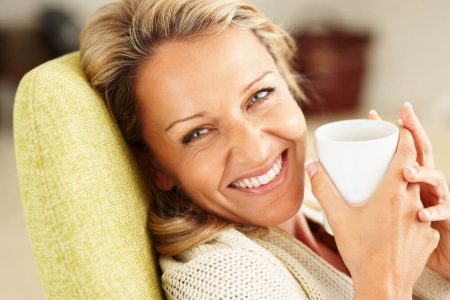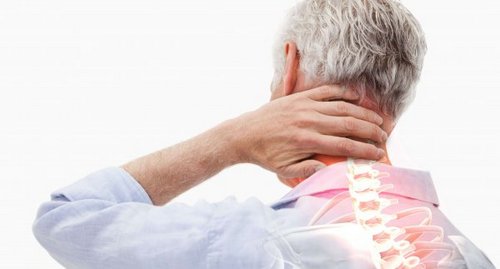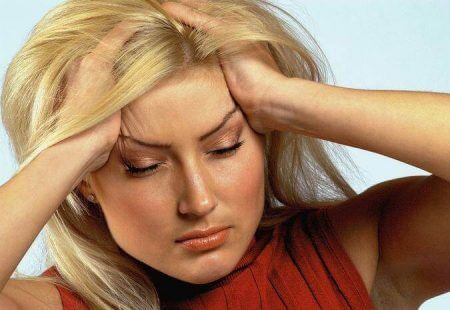The menopause, also called menopause – one of the periods in the life of a female person, which is characterized by natural biological extinction of reproductive functions.
The onset of this phase is associated with hormonal changes in the body, the cause of which – the stock is depleted and the possibility of secretion of female hormones.
Menopause for most women occurs in the age interval from 45 to 55 years. Unpleasant feature of menopause, the uncomfortable presence of a variety of phenomena, among which the main painful symptom is headache (GB).
The nature and causes of cephalgia
The severity of headache at menopause differs in different women. The emergence and manifestation of the pain syndrome depends on many factors:
- genetic inheritance;
- the anatomical Constitution of the body;
- the General condition of the body;
- the presence of chronic somatic diseases or problems of the neuropsychiatric spectrum;
- lifestyle and the presence of addictions;
- quality and nutrition.
Headaches during menopause can be permanent exhausting nature or to overcome periodic severe pain.
Cephalalgia can manifest different feelings:
- the monotonous aching, crushing, constricting;
- paroxysmal pulsating;
- stitching, shooting, cutting;
- verssimo, burning, bursting.
GB at menopause often occurs on the background of arterial hypertension – high blood pressure that requires immediate treatment in a medical institution and examining neurologist, cardiologist, endocrinologist.
Persons with a history of seizures simple and classic migraine, noted increased frequency of hemicrania in menopause.
Menopausal phase is characterized by a significant change in the emotional background, so the ladies of this period often have psychalgia headaches of psychogenic origin, which manifests itself in depression, neurasthenia, and anxiety disorders.
Often menopausal age is undergoing significant changes in the structure of the circulatory channels, increasing the permeability of blood vessels, pathological changes of the aneurysm, the arteries and veins formed atherosclerotic plaque. These lesions are a common cause of GB during menopause.
Informative signals about the need for emergency visits to the doctor are symptoms often developing hours menopause:
- headaches during menopause, caused by minor physical exertion, sexual relations, or sneezing;
- the combination of cephalgia with disorders of consciousness, poor concentration, impaired memory, problems with coordination, loss of sensation in the peripheral portion, the change in tendon reflexes, the appearance of noise and ringing in the ears, decreased visual acuity, loss of taste or smell.
Accompanying clinical manifestations
In menopause frequent companions of headache are a variety of unpleasant symptoms. Often bouts of cephalgia are accompanied by “tides” of heat.

Such phenomena experienced by more than 75% of women. Their frequency and intensity varies from individual episodes to multiple repetitions in a short period of time, from mild discomfort to debilitating sensations.
Often bouts of cephalgia caused by hypertension, which is characterized by a persistent increase in blood pressure. During menopause vegetatio woman reacts violently to a stressful event, rewarding symptomatic hypertension – a sharp rise in blood pressure.
During menopause due to a failure in the hormonal status often observed abrupt changes in emotional condition of the woman: irrational change in mood, the predominance of sensations, characteristic of depression, irrational anxiety.
A person can stand the nervousness and fussiness of action, irritability, absent mindedness, forgetfulness.
The most common autonomic symptoms are:
- changes in heart rate, palpitations;
- excessive sweating;
- dizziness;
- the instability of the vestibular apparatus during walking;
- feeling short of breath, rapid breathing, shortness of breath.
When the headaches a woman may experience muscle weakness, feeling of weakness, fatigue, reduced performance.
Quite often in the phase of fading of reproductive function in women exposed to continuous violations of sleep: difficulty falling asleep, early morning lifting, frequent awakenings during the night, the feeling of dissatisfaction with the night’s rest.
Methods to overcome headaches
Program getting rid of cephalgia during menopause includes a variety of activities that should be carried out comprehensively, consistently and persistently. Treatment scheme are elected individually after careful consideration of prevailing clinical symptoms, assess overall health, taking into account possible risks.
To overcome headache:
- to pharmacological therapy of synthetic drugs and natural phytoestrogens;
- to use the Arsenal green pharmacy and national treatment;
- the observance of special diet and adjustment of drinking regimen;
- to exercise;
- the measures for normalization of the regime of work and rest and elimination of stress level factors.
Medication
The goal of these therapeutic activities: facilitating the flow of natural biological process, preserving health and improving the quality of life of women in old age through the use of hormone replacement therapy.

The window of therapeutic possibilities of drugs in this group accounted for the initial phase of menopause, however, their reception is irrational after 5 years from the onset of menopause.
Part of the means of substitution therapy included female sex hormones, which are able to restore the hormonal balance in the body women. With their help you can significantly reduce or completely eliminate the unpleasant symptoms of menopausal disorders.
The composition of the drugs is often present estradiol valerate (Estradiol valerate), which is directed at relief of vasomotor disorders: headaches and “tides” of heat and related forms of sleep disorders, depressive States, irritability and nervousness mood lability, dizziness.
Among the proven and effective drugs hormone replacement therapy:
- Klimen (Climen);
- The Black Cohosh Black Cohosh (Cimicifuga);
- Proginova (Progynova);
- Divina (Divina).
Wide application in the treatment of headache during menopause have received funds with the composition of natural plant hormones – low molecular weight organic compounds, which are produced by plants.
These substances are able to eliminate the headache of various etiologies, including cephalalgia, manifested on the background of the rise in blood pressure. Their main advantages – a complete security even with their prolonged use and high success in overcoming debilitating pain.
Among the popular products in the domestic market:
- biologically active additive to food, Estravel;
- extract, Klimadinon black cohosh black cohosh (Klimadynon);
- SUPPLEMENTS based on red clover isoflavones were Feminal (Feminal);
- homeopathic remedy Klimaktoplan (Klimaktoplan);
- homeopathic medicine, Remens (Remens).
Will bring a huge relief to women with pain in the head receiving specially selected complex of vitamins and minerals Menopace (Menopace).
Attention! Taking any estrogen drugs should be used under careful medical supervision. Funds in this group are a number of contraindications, including: tumors of any nature, mastopathy, endometriosis, history of uterine bleeding.
To eliminate the headache caused by arterial hypertension, should be used antihypertensives, the purpose of which is exclusively the competence of the doctor. The sudden sharp rise in blood pressure without concomitant tachycardia allowed a single sublingually pills Nifedipine (Nifedipine).
If the cause of painful discomfort – chronic GB stress, to overcome it with the help of analgesics and antispasmodics is unlikely, therefore, neurologists recommend that patients prolonged use of tricyclic antidepressant Amitriptyline (Amitriptylinum).
Treatment of migraine attacks which often worsen at menopause, use different groups of drugs:
- β-blockers;
- calcium channel blockers;
- antidepressants;
- muscle relaxants;
- anticonvulsants;
- antagonists of serotonin;
- nonsteroidal anti-inflammatory drugs.
Popular ways to eliminate the pain in the head
Healers recommend that women with severe course of the climacteric is to regularly take herbal teas and fees.

Forget about headaches and reduce other symptoms of menopause will help medical fees from parts of plants:
- sage;
- oregano;
- mint;
- St. John’s wort;
- nettle;
- raspberry leaf.
Should take a daily freshly brewed tea from the fruit of viburnum, cranberries, rose hips.
To overcome a tension headache, you can use warm baths with the addition of relaxing tools: pine extract, decoctions of Valerian, hop cones, mint. Good sedative effect shows the application of a bath of essential oils: lavender, bergamot, sandalwood, Mandarin, lemon balm.
Diet and diet
The special diet is based on the etiological cause cephalgia and varies depending on the nature of the manifestations of pain syndrome.
However, in most cases, doctors recommend to exclude or limit to a minimum the presence on the table of dishes and products made by Smoking, drying, salting. Not recommended to use industrial products made with the use of stabilizers, preservatives, flavor enhancers.
In the daily diet should contain fresh vegetables, fruits, berries and natural fresh terms. The basis of the daily diet consists of meals made from diet parts of chicken, Turkey or varieties of marine and ocean fish.
It is advisable to use products prepared by the method of boiling, stewing, roasting or steamed. As garnishes you can use porridges from cereals cereal crops.

It is important to eat small meals at least five times a day at equal intervals.
The special role played by the mission. The number of daily liquid should be no less than 2 liters of purified carbonated water.
Preventive measures
The basic principles for the prevention of headaches:
- to carry out exercises of respiratory gymnastics;
- to use relaxation techniques, e.g. meditation;
- to massage the hair area of the head;
- daily to move actively in the fresh air;
- to ensure a sufficient duration of night rest;
- to prevent mental and physical stress;
- take action to resolve stressful situations.



